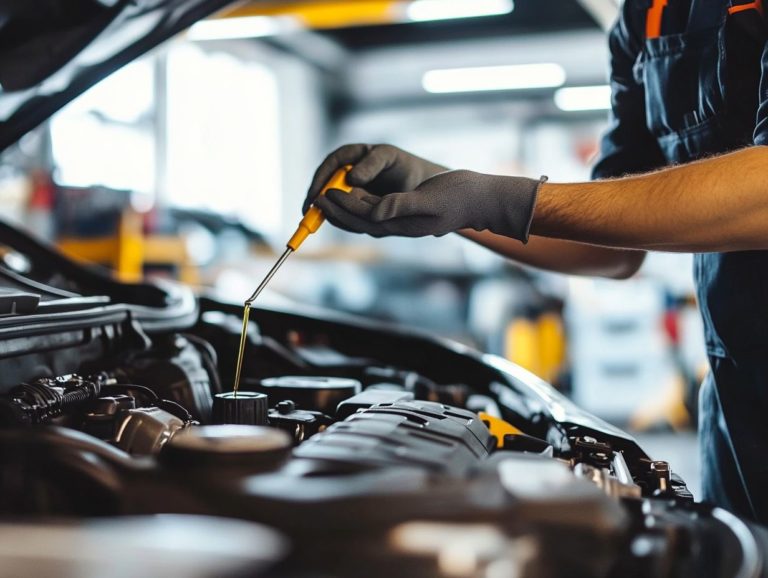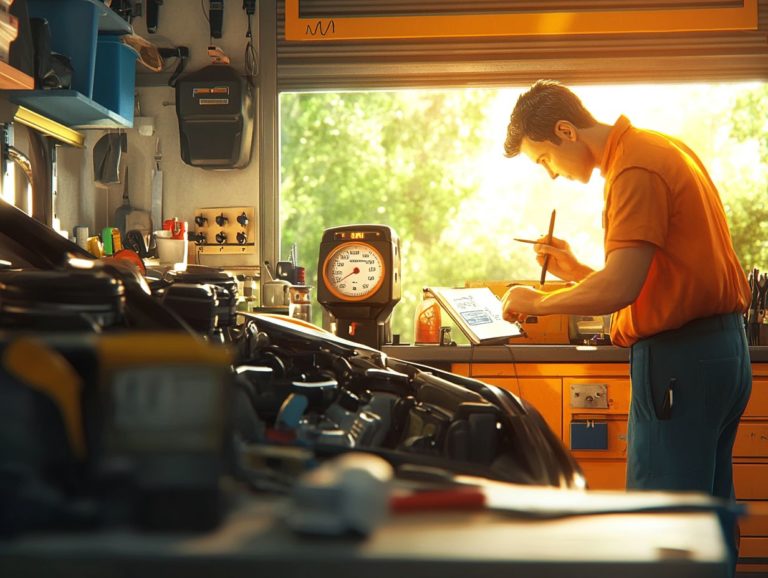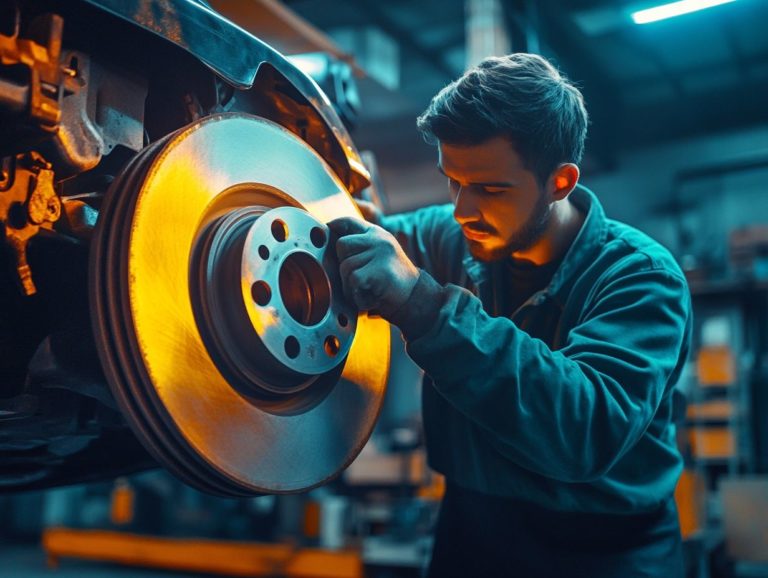The Benefits of Regular Car Inspections
Regular vehicle inspections are crucial for ensuring safety, efficiency, and longevity. They help you spot dangers before they become serious and allow your vehicle to operate smoothly on the road.
This article delves into the components checked during an inspection, how frequently you should schedule them, and the myriad benefits of prioritizing regular maintenance. You ll also find tips on locating a reliable inspection service that aligns with your specific needs.
By prioritizing these inspections, you can enhance your safety and enjoy significant cost savings over time.
Contents
- Key Takeaways:
- Why Regular Vehicle Inspections are Important
- What is Checked During a Vehicle Inspection?
- Frequency of Inspections
- Benefits of Regular Inspections
- How to Find a Reliable Inspection Service
- Frequently Asked Questions
- Why should I get regular car inspections?
- How often should I get my car inspected?
- What are the benefits of regular car inspections for my wallet?
- Can regular car inspections improve the safety of my vehicle?
- What happens during a car inspection?
- Can regular car inspections increase the lifespan of my vehicle?
Key Takeaways:
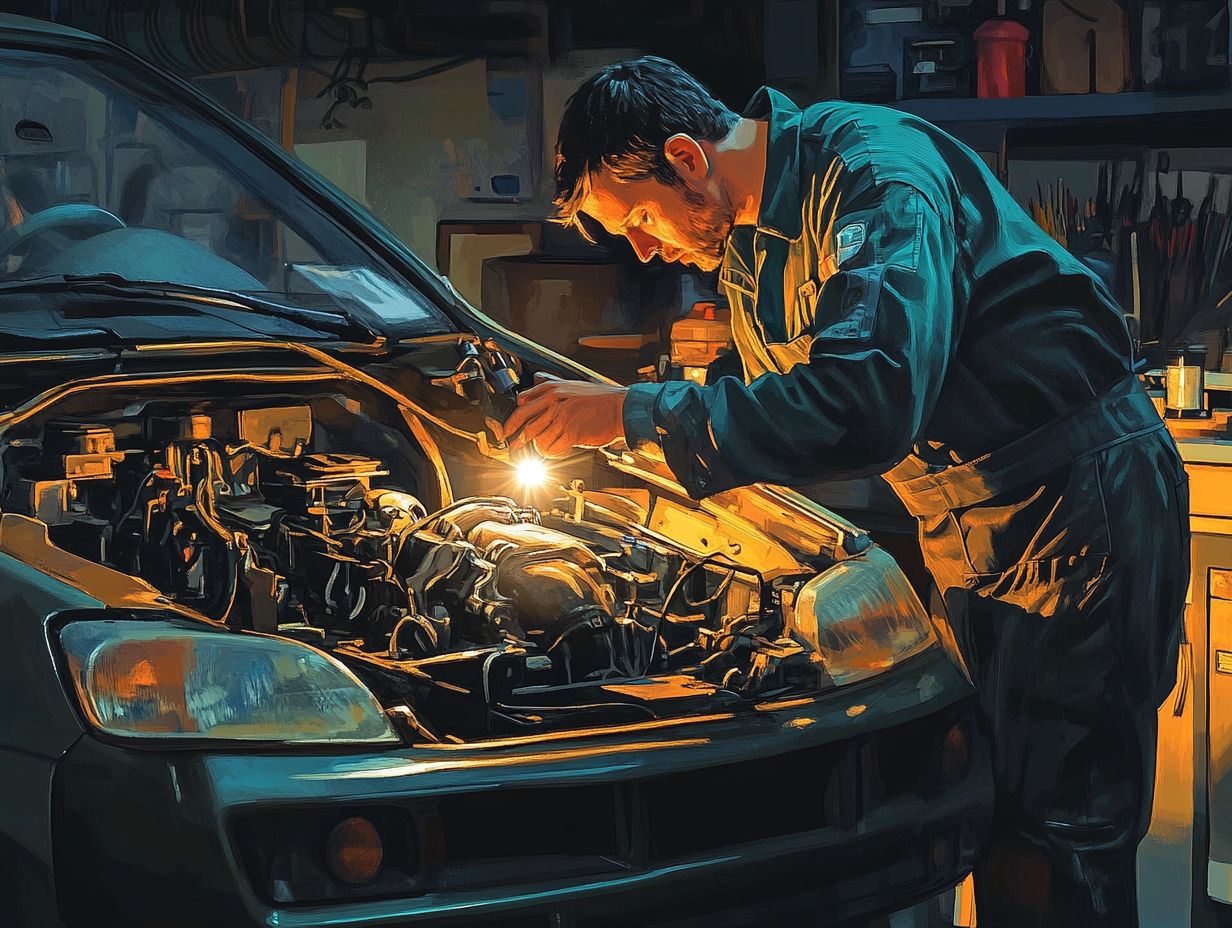
- Ensure safe operation with regular inspections.
- Catch issues early with thorough checks of key components like brakes, tires, and fluids.
- Follow a recommended inspection schedule to save money by preventing costly repairs.
Why Regular Vehicle Inspections are Important
Regular vehicle inspections are essential for ensuring your vehicle’s safety, maintaining optimal performance, and enhancing your overall driving experience. These inspections help you identify potential hazards and mechanical issues that could compromise road safety.
Following safety rules and taking steps to avoid future problems through routine checks can significantly improve your vehicle’s condition. This practice ensures both longevity and reliability. Consistent inspections help you avoid costly repairs later, making them a critical practice for every conscientious vehicle owner.
Ensuring Safe and Efficient Vehicle Operation
Ensuring safe and efficient vehicle operation begins with comprehensive inspections that focus on critical components like brakes, tires, and emissions systems. Regular checks are essential for identifying mechanical issues before they escalate into larger problems, protecting everyone on the road.
Consider brake tests; they can uncover wear and tear that might compromise your stopping power. Tire inspections assess tread depth and pressure, ensuring optimal traction and handling.
By prioritizing these inspections, you can maintain peak performance and significantly reduce the risk of unexpected breakdowns, creating a safer driving environment for everyone involved.
What is Checked During a Vehicle Inspection?
During a vehicle inspection, a meticulous checklist evaluates several essential components. This process ensures everything adheres to safety standards and functions seamlessly for optimal performance.
Key Components and Systems
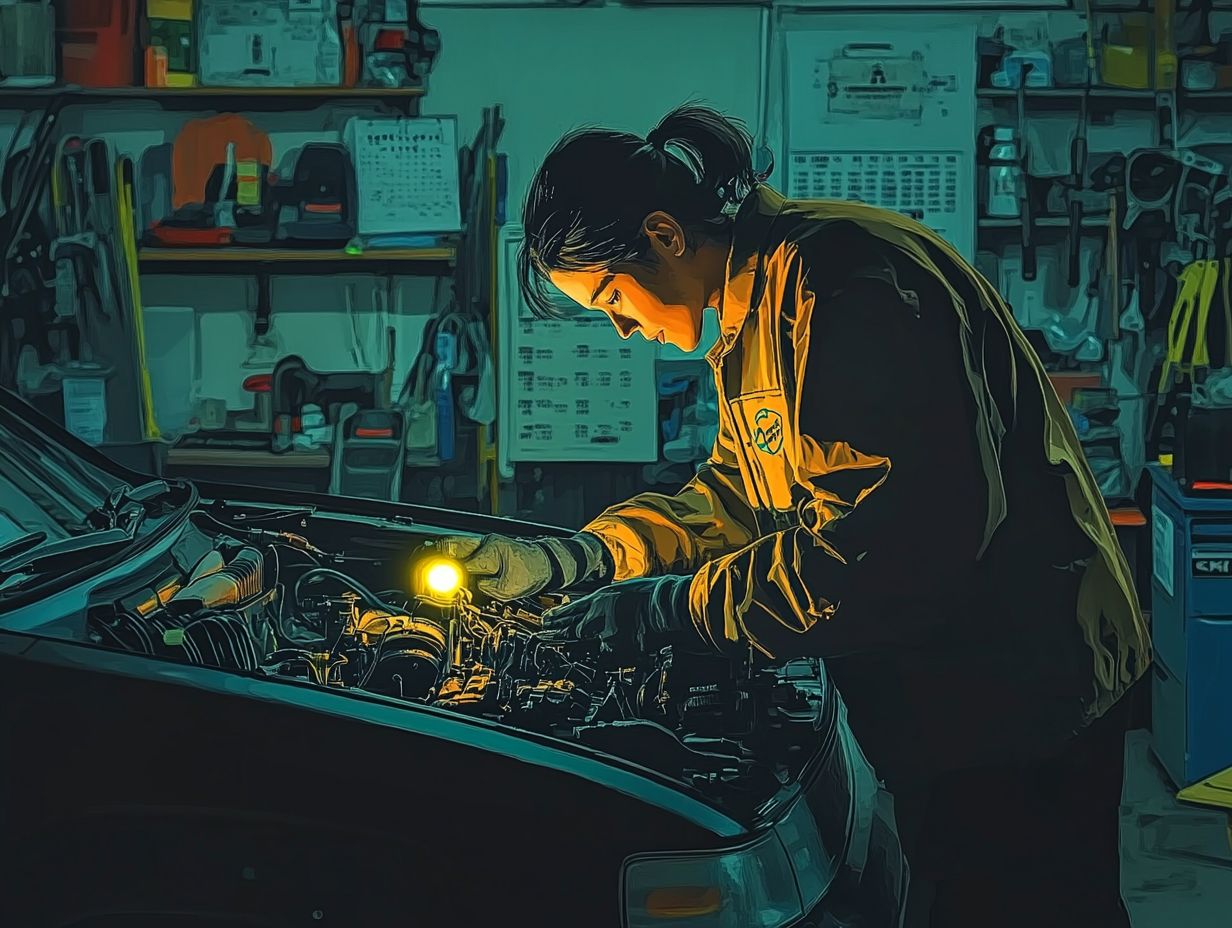
Key components and systems typically checked during an inspection include the braking system, tires, emissions, and steering and suspension. These elements are vital for the vehicle’s operational efficiency and the safety of everyone on board.
The braking system undergoes rigorous testing to assess responsiveness and effectiveness. Technicians simulate various driving conditions to evaluate how well your vehicle can stop.
Tire inspections follow closely, examining tread depth, inflation levels, and overall condition to ensure adequate grip and stability on the road.
Every item on the inspection checklist serves a specific purpose, providing a comprehensive overview of your vehicle s functionality. Emissions testing controls pollution levels and demonstrates a commitment to environmental standards, while a thorough check of steering and suspension guarantees a smooth ride and precise handling.
Together, these assessments offer reassurance of both performance and safety, ensuring your vehicle is roadworthy and a reliable companion on all your journeys.
Frequency of Inspections
As a vehicle owner, you need to adhere to a recommended inspection schedule to ensure optimal performance and compliance. The frequency of vehicle inspections is influenced by several factors, including the type of vehicle you own, how well you’ve taken care of your car, and the specific regulations governing vehicles used for business purposes.
Recommended Schedule for Different Vehicles
For optimal vehicle reliability, it s crucial to follow a recommended inspection schedule that considers your vehicle’s maintenance and the specific needs of commercial vehicles.
Routine inspections prevent unexpected breakdowns and extend the lifespan of your vehicles. If you operate commercial vehicles, which typically face heavier usage and tougher driving conditions, aim for inspections every 1,000 miles or at least once a month, depending on the workload. On the other hand, for personal vehicles, biannual evaluations is usually enough, especially for older models or those showing signs of wear.
Sticking to these tailored schedules enhances safety and ensures a smoother driving experience. Plus, you can achieve significant cost savings by catching potential issues before they escalate.
Benefits of Regular Inspections
The advantages of regular vehicle inspections go well beyond simple compliance; they profoundly enhance your vehicle’s safety and performance while also providing potential cost savings. Understanding the importance of regular brake inspections can help you identify issues early on, preventing them from escalating into costly repairs down the road.
Improved Safety and Performance
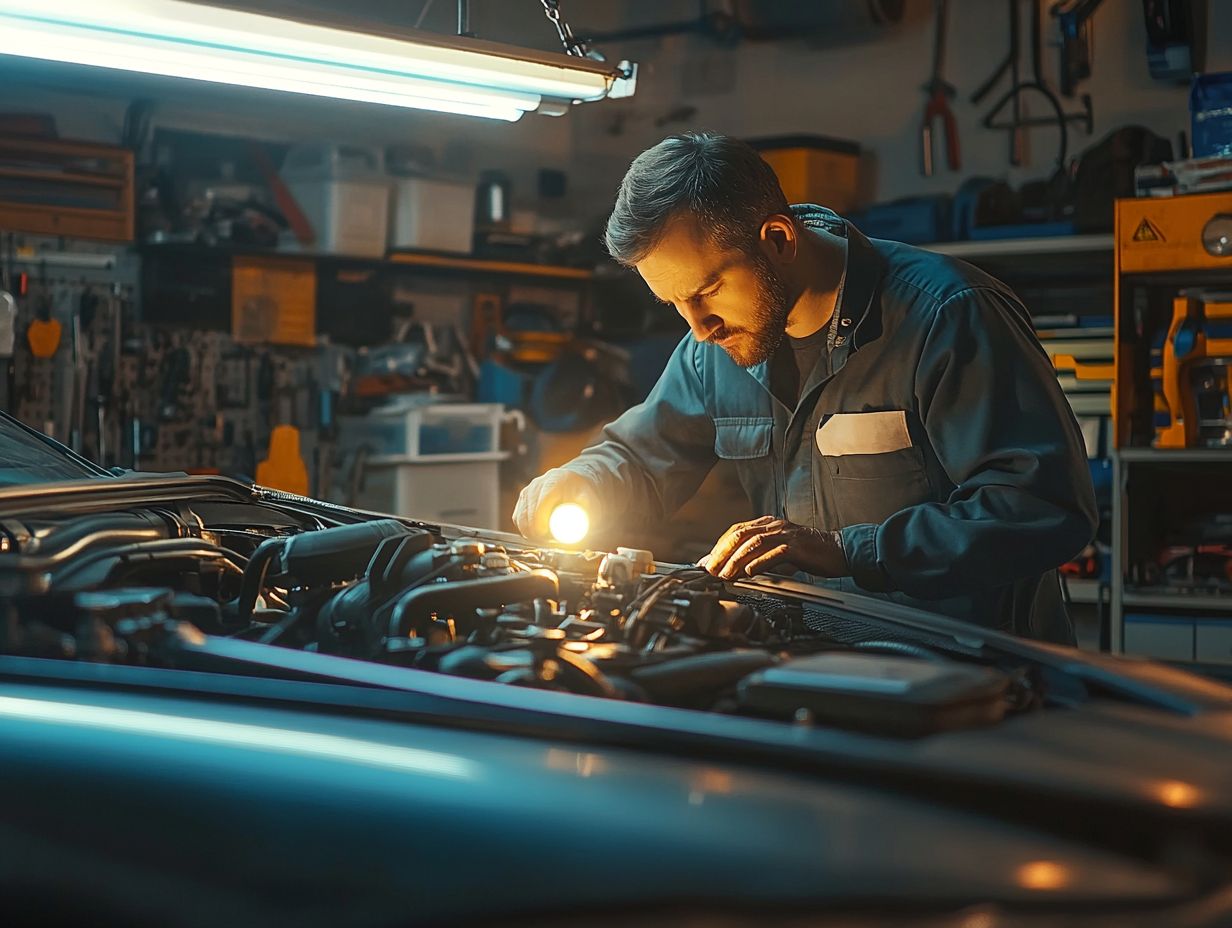
Regular inspections elevate your safety by ensuring that critical systems are functioning optimally and that any mechanical issues are addressed without delay.
These routine checks are essential to preserving the integrity of vital components like brakes, tires, and steering systems, all of which are paramount for safe driving. By catching wear and tear before they develop into major issues, you can steer clear of potentially hazardous situations on the road.
Maintaining these crucial systems enhances your vehicle’s performance while also improving fuel efficiency. In essence, adopting a proactive approach to vehicle maintenance protects you and your passengers and contributes to the overall safety of everyone sharing the road.
Cost Savings in the Long Run
Regular vehicle inspections save you money in the long run by preventing major repair costs and extending your vehicle’s longevity.
By identifying potential issues early, you can tackle minor problems before they escalate into pricey repairs. For example, a simple oil change can save your engine from damage that, if ignored, might require a complete overhaul. Routine checks enhance your safety on the road and improve fuel efficiency, ultimately lowering your gas expenses.
When these inspections become a consistent practice, the cumulative savings over time can be substantial, allowing you to allocate funds toward other priorities instead of dealing with unexpected car troubles.
How to Find a Reliable Inspection Service
For vehicle owners, discovering a reliable inspection service is essential. It requires careful evaluation of key factors such as customer communication, transparency, and the overall efficiency of the automotive services rendered.
Schedule your inspection today to enhance your vehicle’s safety and performance!
Factors to Consider When Choosing a Provider
When selecting an inspection service provider, consider factors that directly influence your satisfaction, such as reputation, pricing, and quality of service.
A provider’s reputation reveals their reliability and skills, offering you peace of mind as a vehicle owner. You can assess this through customer reviews and testimonials, which highlight past experiences and service consistency.
Understanding the pricing structure is crucial. Transparent and competitive pricing protects you from unexpected costs and helps you evaluate the quality of service provided.
The quality of service including inspection thoroughness and customer support plays a significant role in building trust. When these factors align, you ll feel more confident in your choice, enhancing your overall satisfaction with the inspection process.
Frequently Asked Questions
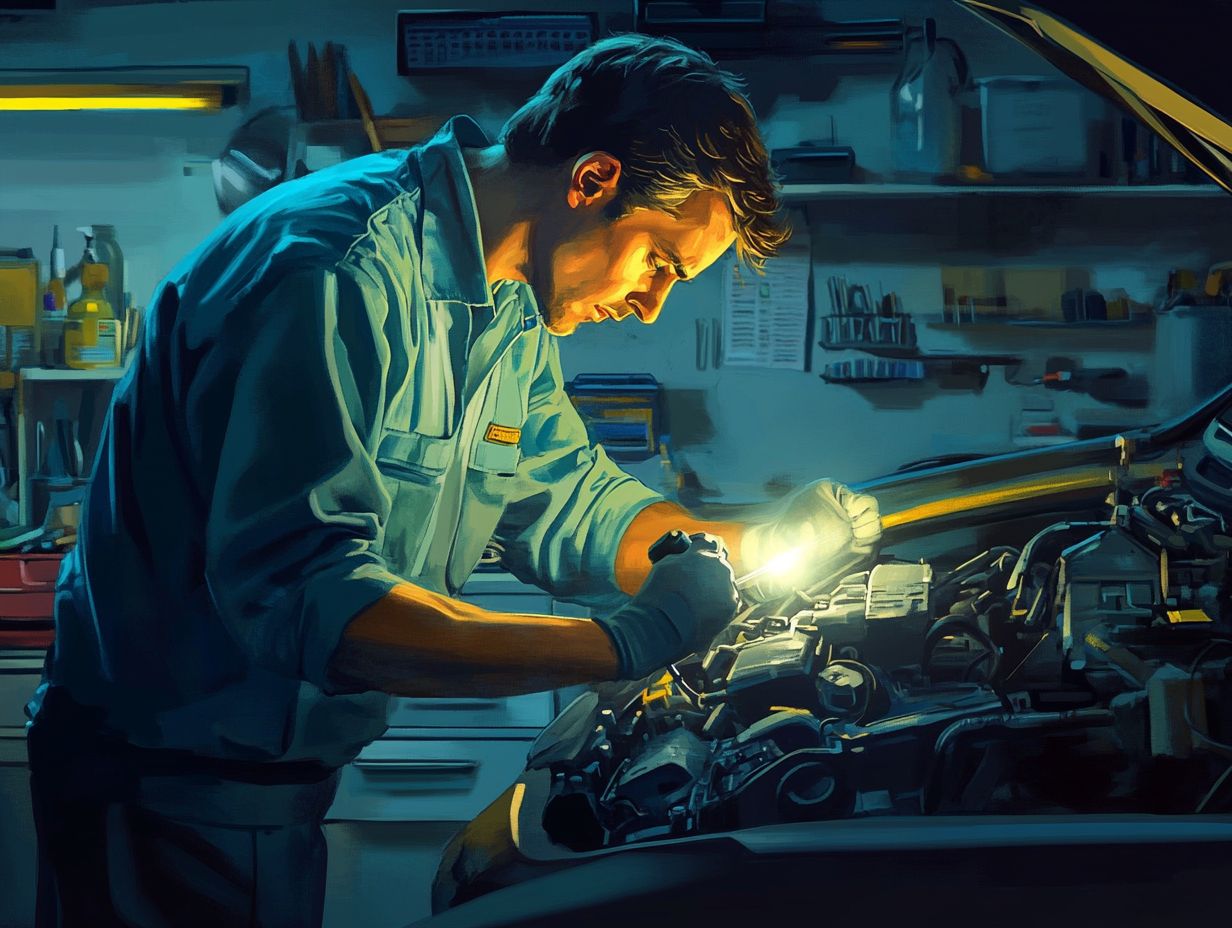
Why should I get regular car inspections?
Regular inspections keep your car safe and ready for the road! They help identify potential issues before they become larger and more expensive problems, highlighting the benefits of regular vehicle inspections.
How often should I get my car inspected?
The frequency of car inspections varies depending on your state’s regulations and your vehicle’s age. Generally, it’s recommended to have your car inspected once a year or every 12,000-15,000 miles.
What are the benefits of regular car inspections for my wallet?
Regular inspections can save you money in the long run by catching small issues before they turn into costly repairs. Additionally, understanding the benefits of regular brake inspections helps maintain your car’s fuel efficiency, saving you money on gas.
Can regular car inspections improve the safety of my vehicle?
Absolutely! Regular inspections can catch potential safety hazards such as worn brakes, faulty steering, or a damaged exhaust system. Keeping up with inspections ensures the safety of you and your passengers on the road.
What happens during a car inspection?
During a car inspection, a trained mechanic thoroughly checks your vehicle’s key components such as brakes, suspension, tires, and lights. The mechanic also looks for signs of wear and tear or potential issues that may need addressing.
Can regular car inspections increase the lifespan of my vehicle?
Yes! Regular inspections can extend your vehicle’s lifespan by addressing small issues before they escalate. Additionally, regular car washes help maintain your car’s overall performance and efficiency.
Don’t wait until it’s too late get your car inspected regularly! Book your inspection today for peace of mind and savings.

